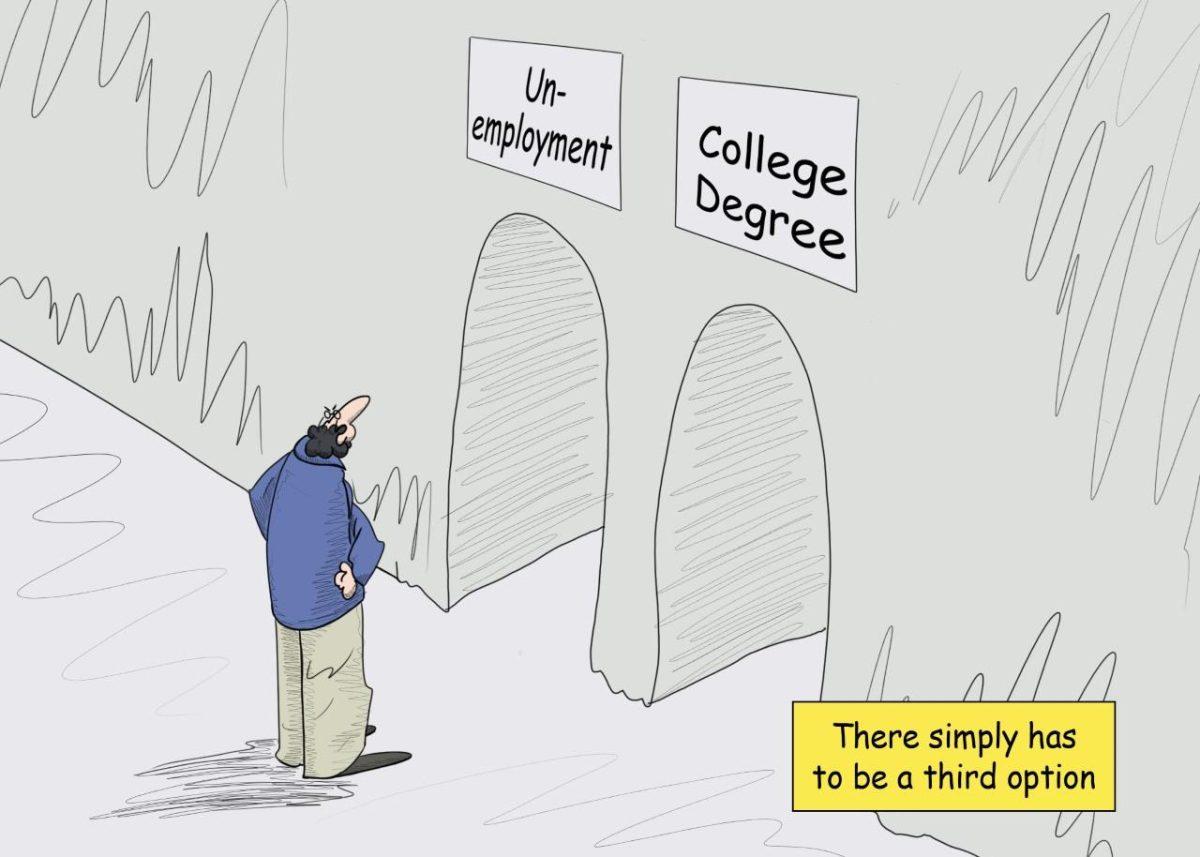So many people today have experienced or witnessed that awkward moment when a young person answers the standard adult query, “What have you been up to?” with an answer that has nothing to do with college. The typical response of contrived smiles and cheery platitudes does its best to mask a deep-rooted concern and disdain: judgement of the young person who has chosen not to pursue a degree.
Conditioned by contemporary attitudes toward accomplishment and competence, this persisting tendency to privilege college as the only respectable means of success is not only illogical, but also dangerous and counterproductive. In a 2018 New York Times op-ed, Ellen Ruppel Shell elaborated on the pervasive perspective of college as an essential step toward financial stability.
She wrote, “Recent decades have brought agreement that higher education is, if not a cure, then at least a protection against underemployment and the inequality it engenders.” Shell goes on to quote President Obama, who, in 2012, stated that attending university is an “economic imperative that every family in America has to be able to afford.”
The controversial “college-for-everyone” economic policy is a different matter with its own complexities that I have no plans to address here. However, the rising interest in such plans very likely correlates with the underlying assumption that higher education is a necessity for financial success in this country.
What’s significant about President Obama’s 2012 statement is that he doesn’t say that higher education is something that “every family in America should be able to afford.” He says that it’s something “every family in America has to be able to afford.” Again, I’m not writing an analysis of economic policy, but the former President’s statement is indicative of deeper cultural trends.
It’s important to note the brutal reality that, on average, people with a college education do earn higher salaries. However, this is certainly not always the case, and there are plenty examples of careers that don’t require a higher education and are perfectly capable of providing financial stability. For instance, the average plumber, who does not require a college degree to enter their profession, earns a higher annual income than the average person with a bachelor’s degree.
Of course, one can engage in the age-old debate about whether an increased chance of higher pay is worth the four years of studying and tuition, but the point I’m trying to make is about cultural expectations and respect.
There are serious consequences when students who aren’t inclined to college life are pressured down that path. If a student realizes they’ve made a vocational error after already spending time in school, they risk the bleak scenario of having to pay off student loans without the payoff of a degree.
More emphasis should be placed on trade school and community college, both of which currently carry unwarranted social stigma. The functions of and skills taught at these institutions are just as, if not more, necessary as those of full-fledged universities.
As a current college student and aspiring academic, I am personally a witness and advocate for all the good that higher education can offer. I think that everyone with the proper talent, desire, and ambition should be given the opportunity of a college education. However, I also believe that people with different priorities and aptitudes should be given the same respect and support to maximize their potential.
Evan Leonhard is a 19-year-old English and philosophy major from New Orleans, Louisiana.
Opinion: College shouldn’t be seen as the only option for success, other paths should be considered
February 27, 2020
College or unemployment? There’s nothing in between






